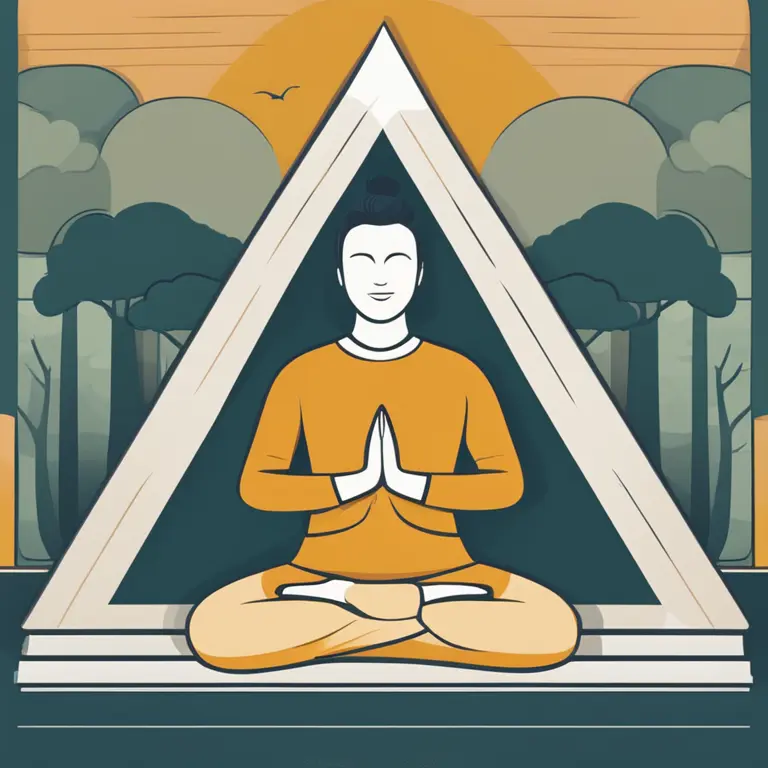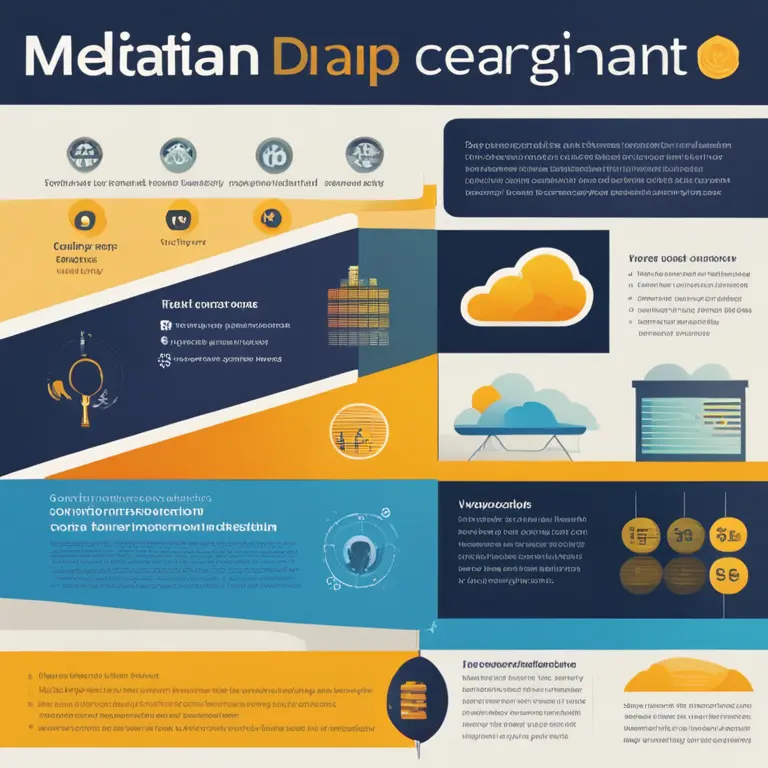
Easing Anxiety Through Meditation Practices
Discover the calming power of meditation to alleviate anxiety and foster well-being with practical techniques and insights.
article by Hina Kurosawa
Meditation: A Refuge from Anxiety
Meditation has long been extolled for its serene and stabilizing effects on the human mind. As we step into 2024, the integration of meditation into mental health strategies has gained momentum, supported by scientific research affirming its benefits in managing stress and anxiety. This ancient practice offers a haven from the chaotic roar of modern life, with techniques that focus on breath, presence, and the cultivation of inner peace. Through regular meditation, individuals are experiencing profound shifts in anxiety levels, embarking on a transformative journey toward tranquility.

Scientific Backing of Meditation's Efficacy
Recent studies have strengthened the claim of meditation's efficacy in combating anxiety. Neuroscientific insights reveal that consistent meditative practices can rewire the brain's response to stress, lowering the 'fight or flight' reactivity and enhancing the 'rest and digest' state. Quantitative brain imaging shows a thickening of the prefrontal cortex and a reduction in amygdala activity, both indicative of a decreased anxiety response. As practitioners adopt these methods, they often report a marked decrease in anxiety symptoms, reinforcing meditation as a valuable tool for emotional regulation.

Incorporating Meditation into Daily Routines
Incorporating meditation into one's daily routine has become more accessible than ever. With a bounty of digital resources and apps available, individuals can now find guided sessions that suit their lifestyle and preferences. To add meditation into a daily regimen, it's advised to start with short sessions, gradually building a practice that feels comfortable and sustainable. Early mornings or evenings can serve as ideal times to meditate, helping to start or end the day with clarity and calm.

Meditation Techniques for Anxiety Relief
There are numerous meditation techniques tailored for anxiety relief, each harnessing a different approach to attain mental ease. Mindfulness meditation encourages practitioners to observe their thoughts without judgment, fostering acceptance and reducing anxious rumination. Similarly, body scan meditation aids in releasing physical tension, a common manifestation of anxiety, by progressively relaxing different parts of the body. Mantra meditation utilizes the repetition of calming words or phrases to soothe the mind, while loving-kindness meditation cultivates feelings of compassion and reduces the isolation often linked with anxiety.

Barriers to Meditation and Overcoming Them
Although the benefits are clear, some individuals face barriers to meditation such as preconceived notions of immediate results, or discomfort with the stillness required. Addressing these hurdles involves setting realistic expectations and understanding that mastery of meditation skills evolves over time. It's also essential to create a conducive environment for practice, comfortable clothing, and a quiet space enhance focus and the ease of settling into a meditative state.
Future Outlook on Meditation for Anxiety
As we look beyond 2024, the trajectory of meditation as a mainstream intervention for anxiety appears promising. With growing advocacy from mental health professionals and increased cultural acceptance, meditation is poised to become an integral component of personalized healthcare plans. Continued research and technological advancements are expected to refine meditation practices further, making them even more effective and tailored to individual needs.
Published: 1/15/2024
Modified: 1/15/2024
More predictions
Come back here soon to learn more about yourself and your future


Mindfulness & Meditation: A Guide for High Schoolers
Discover the benefits of mindfulness meditation tailored for the hectic life of high school students, and learn simple strategies to incorporate it into the daily routine.


Easing Loneliness with Mindfulness Meditation
Explore how mindfulness meditation can provide solace and connection to alleviate the feelings of loneliness.


Harmonizing Life with Meditation Mantras
Delve into the transformative power of meditation mantras to align mind, body, and spirit for a harmonious existence.